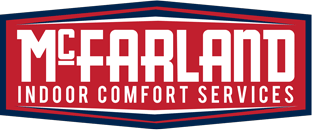3 Reasons To Replace Your 20-Year-Old Air Conditioner
An air conditioner is designed to make your home comfortable when the outside heat is unbearable. However, like any other appliance, AC units age and lose their efficiency with time. Determining the best time to replace your old AC can be complicated. If your AC is about 20 years old, you might wonder whether it makes any difference to replace it. Here are some advantages of replacing a 20-year-old AC that you may find worthwhile. 1.Increased Energy Efficiency One major reason to replace an old AC is to improve energy efficiency and lower overall utility bills. An old unit becomes inefficient because of wear and tear from being used regularly. Newer AC systems are engineered to be energy-efficient, which can significantly save your energy bills. They may save you over 20% on your cooling costs. 2. Avoid Regular Repairs Throughout the lifespan of your system, you may need to schedule repair services for minor issues as they are cheaper than buying a new system. However, if your system is 20 years old, you may start scheduling repairs often. If the repair requires the replacement of a large and costly part, you should start considering replacing it. Constant repair costs may...
View Article